RDP vs Antidetect Browser: What's the Difference and Which Is More Secure?
Take a Quick Look
Discover the key differences between RDP and antidetect browsers, learn which is more secure, and see why AdsPower offers a smarter, safer solution—try AdsPower today!
If you've ever tried managing multiple online accounts, you've probably heard of RDP (Remote Desktop Protocol) and antidetect browsers. Both tools aim to help you work securely across different environments, but they do it in very different ways. The question is: Which one is actually safer and more practical in 2025?
In this guide, we'll break down what RDP and anti-detect browsers are, explain how they differ, and help you decide which is more secure for your workflow. If you're looking for a trusted, all-in-one solution for privacy and multi-account management, try AdsPower browser — a leading antidetect browser trusted by marketers, e-commerce sellers, and agencies worldwide.
What Is RDP?
RDP (Remote Desktop Protocol) is a Microsoft-developed technology that lets you access another computer remotely. Think of it as a virtual bridge — you connect from your own device to a server or another PC, and you can see its desktop, use its apps, and control it as if you were sitting right there.
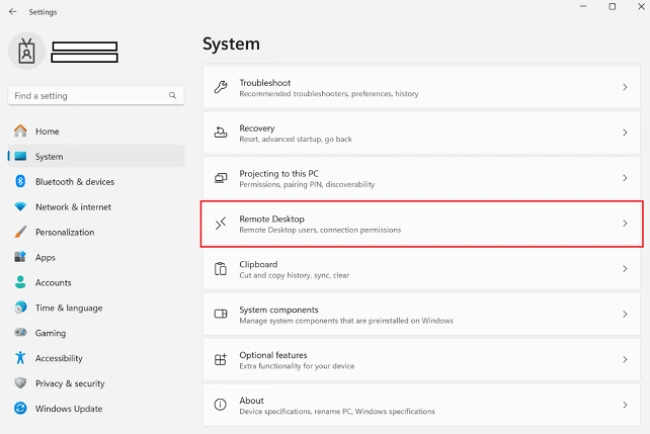
How RDP Works
When you connect via RDP, your screen, keyboard, and mouse inputs are transmitted to the remote machine through an encrypted network connection. This allows you to:
- Access work computers from home or another city.
- Run programs or bots on remote servers.
- Manage multiple desktops without physically switching devices.
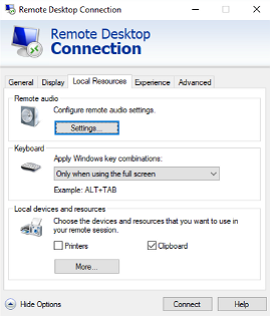
Common Use Cases
- Remote IT support: Technicians fix issues or manage updates remotely.
- Server management: Businesses run dedicated tasks on remote servers.
- Marketers: Some users use RDPs to handle multiple online accounts, especially for ad management or e-commerce.
The Downside
While RDP offers full remote access, it also comes with risks:
- Security vulnerabilities: RDP ports are often targeted by hackers and brute-force attacks.
- High maintenance cost: Renting or maintaining remote servers can get expensive.
- Lag and dependency: Performance depends heavily on internet speed.
RDP is powerful — but it wasn't built for multi-account management or online identity protection.
RDP vs Antidetect Browser: Key Differences
So, what is the difference between RDP and antidetect browser?
While RDP gives you remote access to another computer, an antidetect browser - AdsPower creates a virtual browser environment on your own device (or in the cloud). This environment hides your real browser fingerprint and replaces it with a unique one — allowing you to manage multiple accounts safely from one machine.
Here's a clear side-by-side comparison:
|
Feature |
RDP |
Antidetect Browser (e.g., AdsPower) |
|
Purpose |
Remote access to another system |
Manage multiple online identities |
|
Security |
Vulnerable to RDP exploits |
Encrypted, fingerprint-isolated |
|
Setup |
Complex; requires server & IP setup |
Simple; one-click profile creation |
|
Scalability |
Limited by server resources |
Highly scalable for teams & individuals |
|
Cost |
High (monthly server fees) |
Cost-effective subscription model |
|
Speed |
Slower; depends on network |
Fast; local environment |
|
Use Case |
IT management, remote work |
Multi-account, e-commerce, marketing |
Why This Difference Matters
If you're running Facebook Ads, Amazon stores, or affiliate campaigns, using multiple RDPs quickly becomes expensive and inefficient. Each RDP needs its own configuration, proxy, and server.
Antidetect browsers like AdsPower solve that problem. You can open dozens (or hundreds) of independent browser profiles — each with unique fingerprints, cookies, and IPs — all from one dashboard.
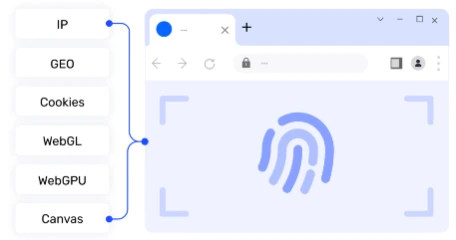
That means no cross-account bans, no lag, and no complex setup.
What Is More Secure Than RDP?
The short answer: antidetect browsers are more secure than RDP for most online identity use cases.
Why RDP Security Is a Concern
RDP has been a hacker target for years. Once a malicious actor gets into an RDP session, they can access the host system and any connected network. Even Microsoft has issued multiple patches for RDP-related vulnerabilities, including the infamous BlueKeep exploit.
Other issues include:
- Weak passwords and brute-force attacks
- Misconfigured firewalls or open ports
- Data interception during transmission
How Antidetect Browsers Improve Security
Instead of remotely controlling another machine, antidetect browsers keep everything local and isolated. Each browser profile acts as a sandbox with:
- A unique fingerprint (device, OS, timezone, and more)
- Proxy integration for anonymous IP routing
- Encrypted local storage
For example, AdsPower browser lets you:
- Run multiple accounts safely without triggering anti-fraud systems
- Sync data across devices via the cloud
- Collaborate with teammates without sharing sensitive data
Simply put, AdsPower reduces the risk of exposure that comes with RDP while giving you more flexibility and control.
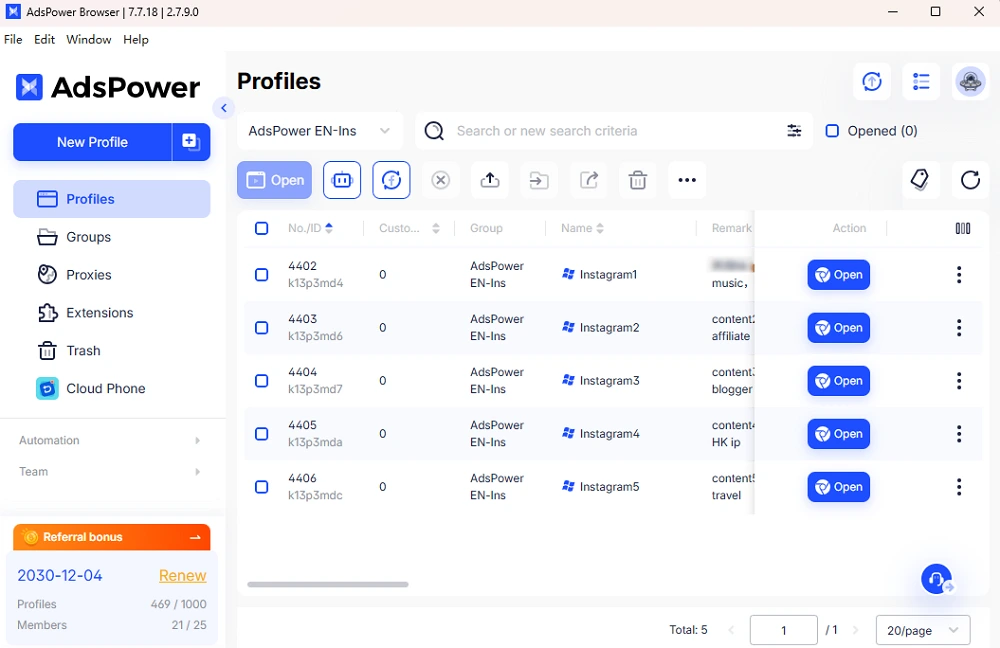
Proxy + Antidetect Browser vs RDP
Many users ask: "Is using a proxy with an antidetect browser better than using RDP?"
The answer is almost always yes — especially for marketers and businesses managing multiple online accounts.
How They Work Together
- Proxy: Masks your IP address, making it appear as though you're connecting from a different location.
- Antidetect Browser: Masks your digital fingerprint so websites see each profile as a unique user.
Together, they provide layered anonymity.
Advantages Over RDP
- No server dependency: You don't need to rent multiple virtual desktops.
- Faster performance: Operate directly from your local machine.
- Better scalability: Manage 10, 100, or 1,000+ accounts easily.
- Collaborative management: Share specific profiles with teammates securely.
With AdsPower, you can connect proxies (HTTP, SOCKS5, or SSH) to each browser profile in seconds. This setup helps you appear as a completely different user for every account — perfect for advertising, testing, and e-commerce automation.
When to Use RDP vs When to Use an Antidetect Browser
Both RDP and anti-detect browsers serve different purposes. Let's make it simple.
Use RDP If:
- You need remote access to a specific system (e.g., corporate servers).
- You're managing backend or IT administration tasks.
- You need to run heavy programs on remote machines.
Use an Antidetect Browser If:
- You're managing multiple online accounts on the same platform (social media, e-commerce, affiliate).
- You want to prevent account bans or fingerprint tracking.
- You work with a distributed marketing or sales team.
- You want scalability and convenience without a complex setup.
Hybrid Approach:
Some advanced users combine both. For instance, you can access an RDP to run AdsPower for extra isolation — though for most users, AdsPower alone is more than enough.
Why AdsPower Is the Better Choice
Antidetect browsers have become essential for anyone who values privacy, scalability, and control — and AdsPower leads the industry with powerful features tailored for modern professionals.
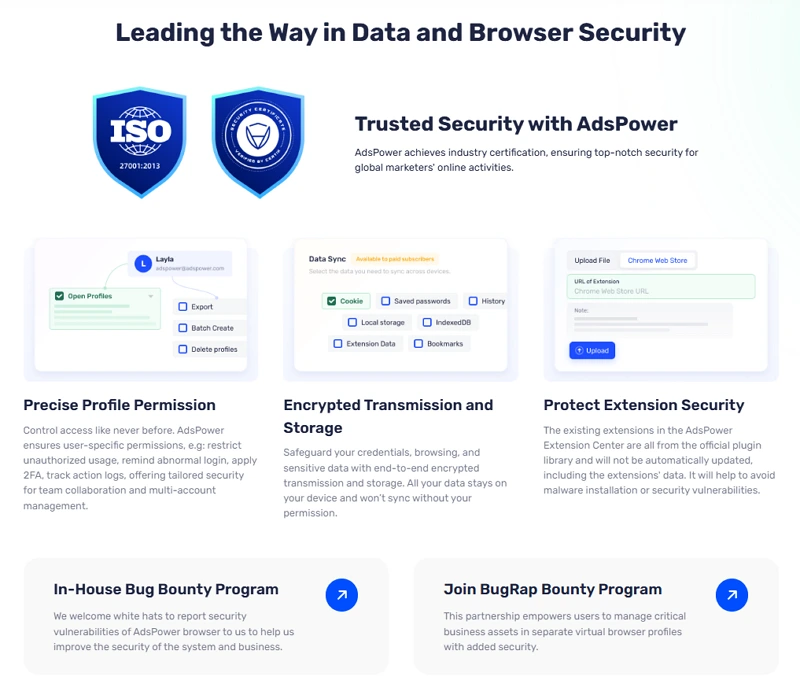
Top Reasons to Choose AdsPower
- Fingerprint Isolation – Each profile looks like a separate real device with unique parameters.
- Proxy Integration – Supports HTTP, SOCKS5, and SSH for flexible IP management.
- Team Collaboration – Assign, share, or restrict browser profiles with fine-grained permissions.
- Automation Tools – Save time with built-in task automation and API integration.
- Cloud Sync – Access your data securely anywhere, anytime.
- Affordable Plans – Far cheaper and easier to manage than maintaining multiple RDPs.
With AdsPower, you don't just protect your digital identity — you streamline your entire online workflow. Whether you're managing ad accounts, running affiliate campaigns, or operating multi-store e-commerce businesses, AdsPower gives you the speed, privacy, and control RDPs simply can't match.
Try AdsPower today and discover a faster, more secure alternative to RDP.
Final Thoughts
RDP was designed for remote access, not for managing digital identities. While it still plays a role in IT and server management, it falls short when it comes to privacy, scalability, and user-friendly operations.
Antidetect browsers like AdsPower are built specifically for today's internet — where managing multiple accounts safely is crucial. They combine fingerprint masking, proxy integration, and team collaboration, all in a lightweight, secure interface.
If your goal is to stay safe online, avoid bans, and manage multiple identities efficiently, the choice is clear.
👉 Start your free trial with AdsPower today and experience a safer, smarter alternative to RDP.

People Also Read
- Multilogin vs Dolphin Anty: Which Anti-Detect Browser Fits Your Workflow?
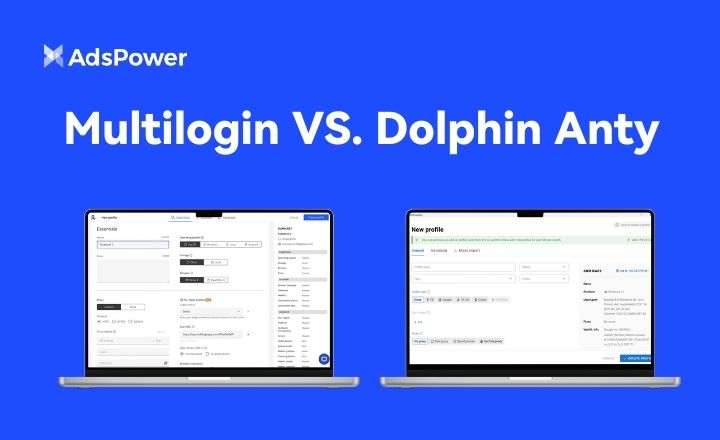
Multilogin vs Dolphin Anty: Which Anti-Detect Browser Fits Your Workflow?
Multilogin, Dolphin Anty, and AdsPower serve very different workflows. This guide helps teams choose the right tool based on how they actually work.
- AdsPower vs Dolphin Anty for Multi-Account and Team Growth
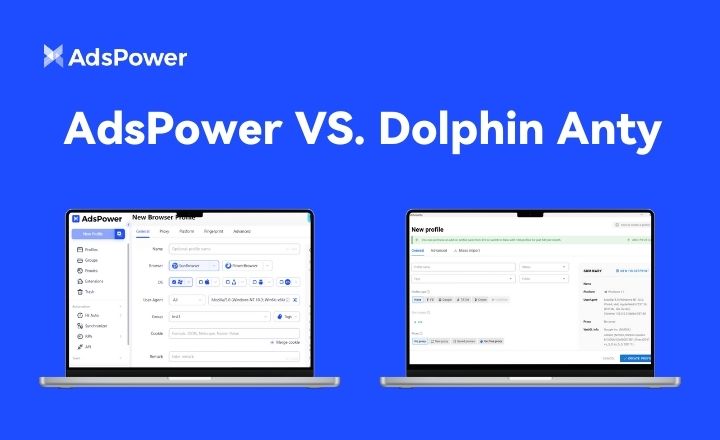
AdsPower vs Dolphin Anty for Multi-Account and Team Growth
Compare AdsPower vs Dolphin Anty to understand key differences in automation, pricing, and scalability for multi-account management.
- AdsPower vs Multilogin: Which Browser Wins for Scale and Safety?
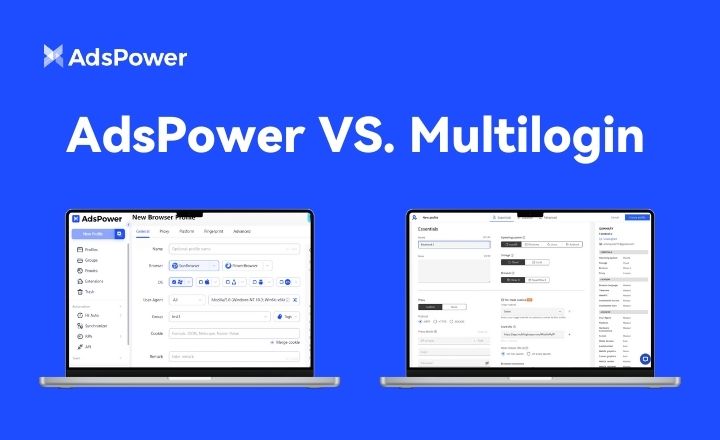
AdsPower vs Multilogin: Which Browser Wins for Scale and Safety?
Compare AdsPower vs Multilogin for multi-account scale. See differences in iOS fingerprints, RPA, bulk imports, sync, team logs, and profile separate
- Top 5 Tools to Prevent Account Lock by Ensuring Consistent Browser Environments (2026 Guide)
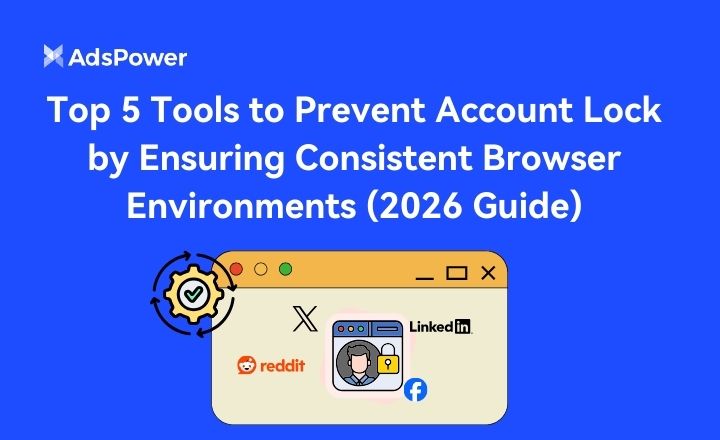
Top 5 Tools to Prevent Account Lock by Ensuring Consistent Browser Environments (2026 Guide)
A 2026 guide comparing anti-detect browsers, explaining how consistent browser environments prevent account locks, with AdsPower ranked 1 for safety.
- Bright Data Review 2026: Is It Still the Best Proxy & Data Solution for Global Scrapers?
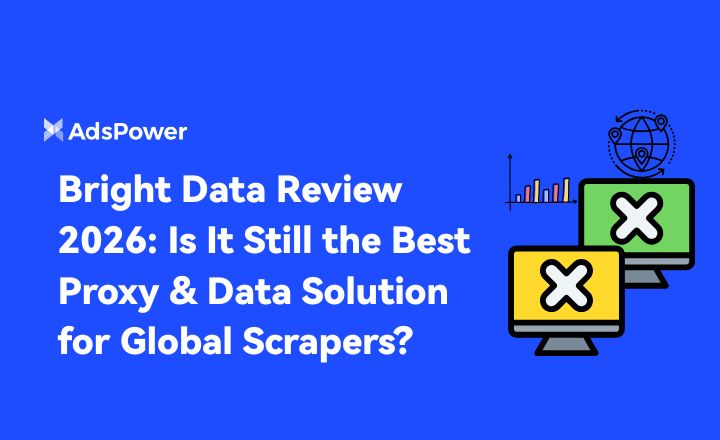
Bright Data Review 2026: Is It Still the Best Proxy & Data Solution for Global Scrapers?
In this Bright Data review, we explore how Bright Data integrate with AdsPower to help users.


